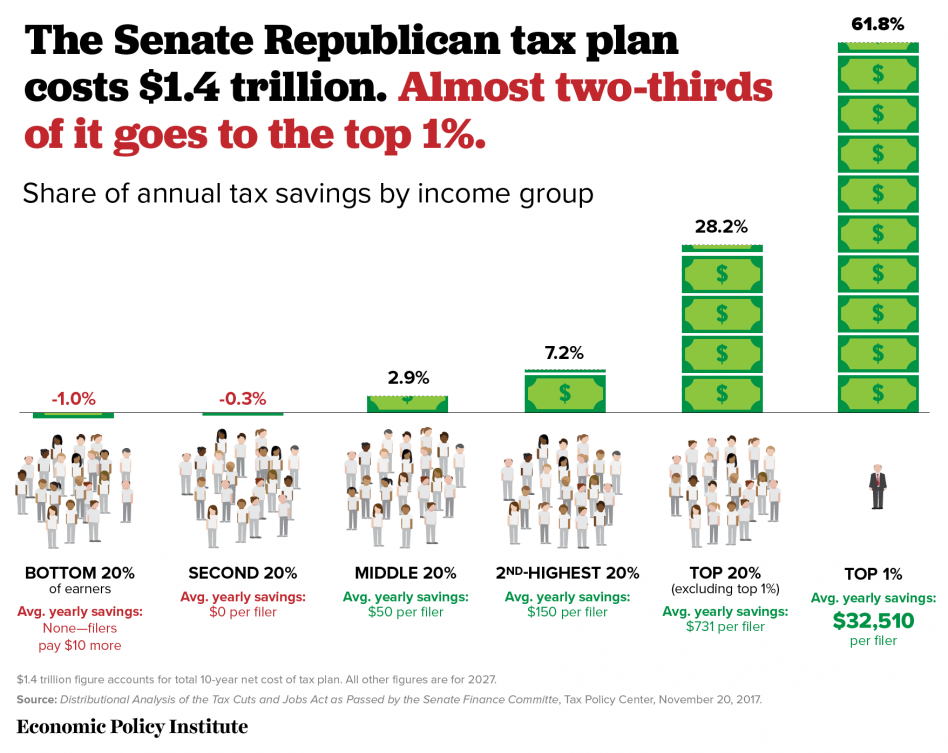In the middle of the night on Friday, Republican Senators passed a bill overhauling America's tax code on nearly a strict party-line vote. Slashing taxes for corporations and the wealthy, the bill is projected to increase the national debt by $1.5 trillion over the next decade.
Among many other impacts, if the bill becomes law it threatens federal funds for transit, biking, and walking.
While the tax bill itself doesn't cut funding, a law already on the books triggers reductions in spending to offset losses of tax revenue.
For transportation, discretionary transportation programs like New Starts, which funds transit expansions, and TIGER, which has helped cities across the country build multi-modal projects, are especially at risk.
With $150 billion annually on the chopping block unless Congress changes course, even more of America's $50 billion surface transportation program could be targeted. That's because rather than raise the gas tax, Congress has been funding infrastructure using general fund money and various accounting gimmicks.
Transportation for America's Kevin Thompson said in a statement that the bill makes the chances of a federal infrastructure bill even more remote:
This tax reform measure triggers ten years of annual automatic cuts to transportation programs unless Congress takes further action, and it may also signal the final demise of a national infrastructure package. After creating more than a trillion dollars in new debt, it is difficult to fathom where this Congress will find the resources to pay for another trillion-dollar program.
To add insult to injury, the Senate bill eliminated the meager $20 per month in commuter benefits available to people who bike to work. People for Bikes' Tim Blumenthal wrote in a statement:
What is the Senate thinking? Why single out a modest incentive that encourages people to bike to work, increasing community health and reducing congestion, while maintaining a significantly larger and more expensive incentive for people to drive?
I believe that's known as Republican identity politics.
The tax bill still has to go to conference committee where differences between the Senate and House bills would get hammered out, and then go up for a vote in each chamber again. Or the House might rubber stamp the Senate version. Trump has said he wants to sign the bill before Christmas.






